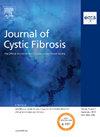WS02.01Provider perspectives related to the care of sexual and gender minority people living with cystic fibrosis in the United States and Canada
IF 6
2区 医学
Q1 RESPIRATORY SYSTEM
引用次数: 0
Abstract
Objectives
LGBTQIA+ people face significant health inequities. We examined CF providers’ attitudes and practices toward the care of LGBTQIA+ people with CF via the PRIDE-CF Study.
Methods
We designed and administered a survey to United States (US) and Canadian (CA) CF providers in 2024. We compared response distributions with Chi-square tests.
Results
A total of 389 providers (330 US, 59 CA) completed the survey. Of all participants, 6% reported discomfort working with LGBTQIA+ people, and 15% felt that there are only two genders. Most (87%) agreed that asking about sexual orientation and gender identity is important to healthcare, and 63% agreed that gender-affirming hormone therapy is safe in CF. Most (86%) felt training on supporting LGBTQIA+ people would help them be better clinicians. US providers reported greater comfort in talking to patients about sexual orientation (US 73% vs. CA 53%, p<0.01) and gender identity (US 74% vs. CA 54%, p<0.01) as well as referring for gender-affirming mental health (US 83% vs. CA 56%, p<0.01), medical (US 67% vs. CA 43%, p<0.01), and surgical care (US 46% vs. CA 28%, p=0.02). US and CA providers had different beliefs on who has the primary role in LGBTQIA+ care for people with CF (US 51% CF team, 39% primary care vs. CA 25% CF team, 65% primary care, p<0.01). US providers were more likely to ask CF patients about their sexual orientation (US 54% vs. CA 33%, p<0.01), gender identity (59% US vs. 43% CA, p=0.04), and affirmed name and pronouns (75% US vs. 63% CA, p=0.07). US providers were more likely to have been trained to support LGBTQIA+ people (US 43% vs. CA 20%, p<0.01).
Conclusion
CF providers valued addressing LGBTQIA+ health concerns but lacked expertise and resources to routinely provide this care. CA providers reported less comfort and practice differences compared to US providers. Future PRIDE-CF work will explore health experiences and outcomes of LGBTQIA+ people with CF.
Funding: CF Foundation(KAZMER23A0-HETS)
ws02.01美国和加拿大性少数群体囊性纤维化患者护理的提供者观点
lgbtqia +人群面临严重的健康不平等。我们通过PRIDE-CF研究调查了CF提供者对LGBTQIA+ CF患者护理的态度和做法。方法我们于2024年对美国(US)和加拿大(CA)的CF供应商进行了调查。我们用卡方检验比较响应分布。结果共有389家供应商(330家美国公司,59家中国公司)完成了调查。在所有参与者中,6%的人表示与LGBTQIA+人群一起工作不舒服,15%的人觉得只有两种性别。大多数人(87%)同意询问性取向和性别认同对医疗保健很重要,63%的人同意性别确认激素治疗在CF中是安全的。大多数人(86%)认为支持LGBTQIA+人群的培训将帮助他们成为更好的临床医生。据报道,美国医疗服务提供者在与患者谈论性取向(美国73%对CA 53%, p<0.01)和性别认同(美国74%对CA 54%, p<0.01)以及谈及性别肯定的心理健康(美国83%对CA 56%, p<0.01)、医疗(美国67%对CA 43%, p<0.01)和外科护理(美国46%对CA 28%, p=0.02)时表现得更自在。对于谁在CF患者的LGBTQIA+护理中起主要作用,美国和CA的提供者有不同的看法(美国51%的CF组,39%的初级保健;CA 25%的CF组,65%的初级保健,p < 0.01)。美国提供者更有可能询问CF患者的性取向(美国54%对CA 33%, p= 0.01),性别认同(美国59%对CA 43%, p=0.04),以及肯定的名字和代词(美国75%对CA 63%, p=0.07)。美国提供者更有可能接受过支持LGBTQIA+人群的培训(美国43% vs. CA 20%, p<0.01)。结论cf提供者重视解决LGBTQIA+的健康问题,但缺乏常规提供这种护理的专业知识和资源。与美国供应商相比,CA供应商报告的舒适度和实践差异较小。PRIDE-CF未来的工作将探讨LGBTQIA+人群的健康经历和结果。资助:CF基金会(KAZMER23A0-HETS)
本文章由计算机程序翻译,如有差异,请以英文原文为准。
求助全文
约1分钟内获得全文
求助全文
来源期刊

Journal of Cystic Fibrosis
医学-呼吸系统
CiteScore
10.10
自引率
13.50%
发文量
1361
审稿时长
50 days
期刊介绍:
The Journal of Cystic Fibrosis is the official journal of the European Cystic Fibrosis Society. The journal is devoted to promoting the research and treatment of cystic fibrosis. To this end the journal publishes original scientific articles, editorials, case reports, short communications and other information relevant to cystic fibrosis. The journal also publishes news and articles concerning the activities and policies of the ECFS as well as those of other societies related the ECFS.
 求助内容:
求助内容: 应助结果提醒方式:
应助结果提醒方式:


